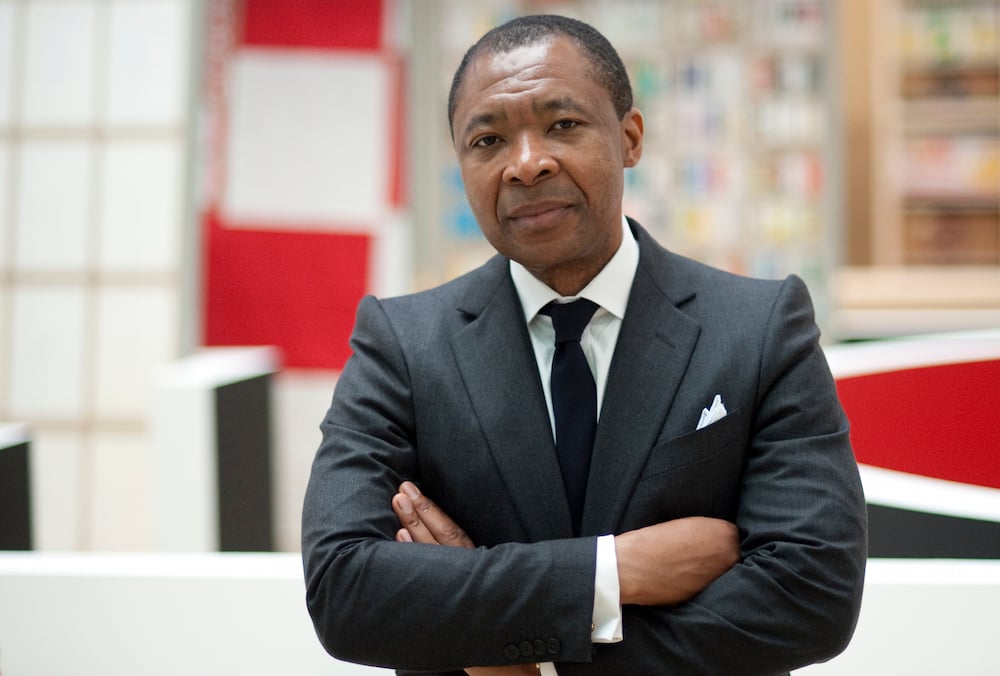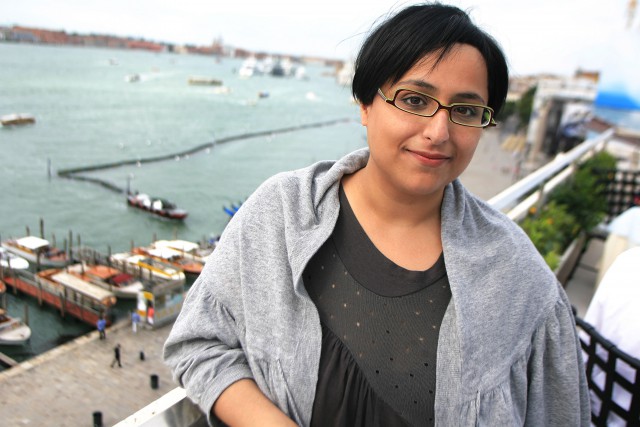Art & Exhibitions
Legendary Curator Okwui Enwezor’s Final Show, ‘Postcolonial,’ Will Now Become a Reality in Sharjah
The curator planned a sequel to his legendary “Postwar” exhibition as part of the next Sharjah Biennial.

The curator planned a sequel to his legendary “Postwar” exhibition as part of the next Sharjah Biennial.

Taylor Dafoe

It turns out that Okwui Enwezor—the legendary curator who died from cancer complications earlier this year at age 55—has yet to open his final show.
Today, the Sharjah Art Foundation in the United Arab Emirates announced that the next edition of its biennial—the leading contemporary art exhibition in the Middle East—will include a project that Enwezor began organizing before his death. Titled “Postcolonial,” the show is billed as a sequel to his sprawling, widely influential 2017 exhibition “Postwar: Art Between the Pacific and the Atlantic, 1945–1965” at Haus der Kunst in Munich. The new exhibition is set to open as a centerpiece of the 15th edition of the biennial (known as SB15) this March.
Shortly after his departure from the Haus der Kunst, where he served as artistic director from 2011 to 2018, Enwezor was approached by collector Hoor al-Qasimi, the president and director of the Sharjah Art Foundation, about curating the next edition of the biennial. The two worked closely on the program until the curator’s death in March 2019, and he left behind copious notes and preparatory materials.
“It is difficult to overstate the tremendous impact Okwui Enwezor had on contemporary art and its institutions,” al-Qasimi, who cites the curator’s 2002 edition of documenta as a major influence for her own globally minded perspective on art, said in a statement. “Our hope is that SB15 will serve as a platform to further explore and expand on his curatorial and intellectual legacy.”
Prior to his death, Enwezor asked al-Qasimi to oversee the execution of his curatorial vision with a group of his closest collaborators: curator Tarek Abou El Fetouh; director of NTU Center for Contemporary Art Singapore, Ute Meta Bauer; and art historians Salah M. Hassan and Chika Okeke-Agulu. al-Qasimi will also work with an advisory committee composed of architect Sir David Adjaye, artist John Akomfrah, and Ashkal Alwan art center director Christine Tohmé.

Sheika Hoor Al Qasimi, president of the Sharjah Foundation and curator for the UAE’s national pavilion at the Venice Biennale. Photo: Alex Maguire.
The list of artists and exhibitions under the SB15 umbrella has yet to be announced, though, like previous editions, the biennial will feature a series of major commissions, large-scale public installations, performances, and films in addition to Enwezor’s historical show, according to the announcement.
Enwezor was also responsible for developing the biennial’s overall theme: “Thinking Historically in the Present.” In his notes, he envisioned the exhibition as a “module with which to deal with the disruptive power of artistic monolingualism but also as horizon of the possible to conceive another theoretical space for ‘Thinking Historically in the Present.’”
For Qasimi, the concept is representative of the kind of big-picture thinking that endeared Enwezor to a generation of curators, scholars, and artists.
“You can’t really look at the future without looking at the past and the present,” Qasimi told the New York Times. “Everybody’s looking back at art history, trying to rewrite the narrative of what we’ve been told. I think that’s why a lot of people have been inspired by ‘Postwar,’ and I hope that the second part, ‘Postcolonial,’ will also do that.”
Earlier this year, the Sharjah Foundation announced that Enwezor bequeathed his papers and library to its new Africa Institute, which is set to be designed by Adjaye and unveiled in 2023.